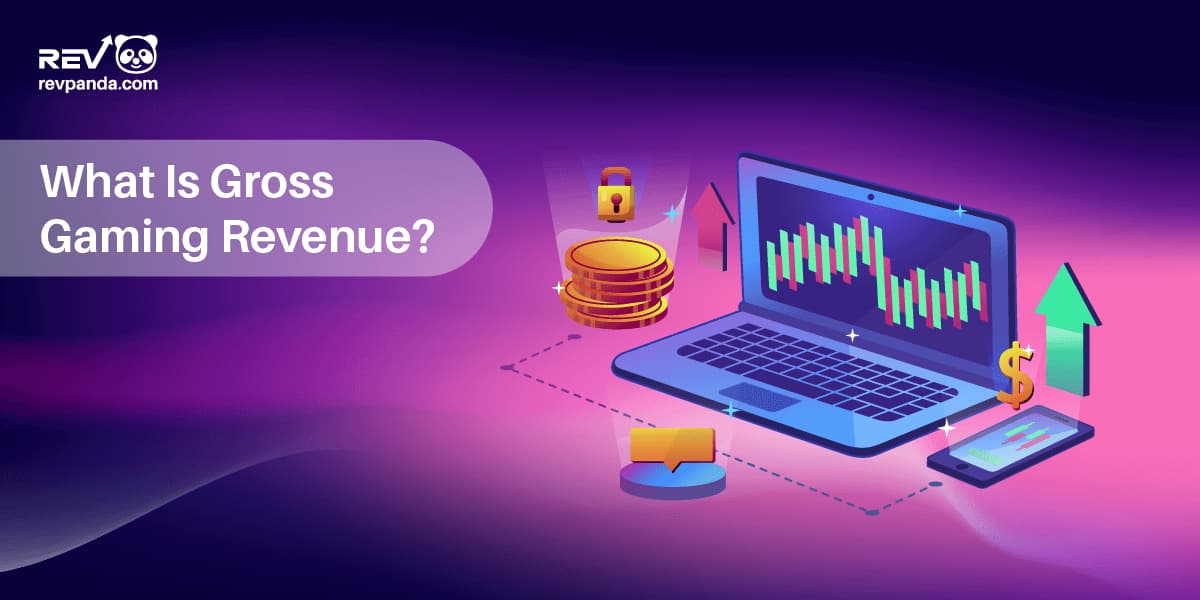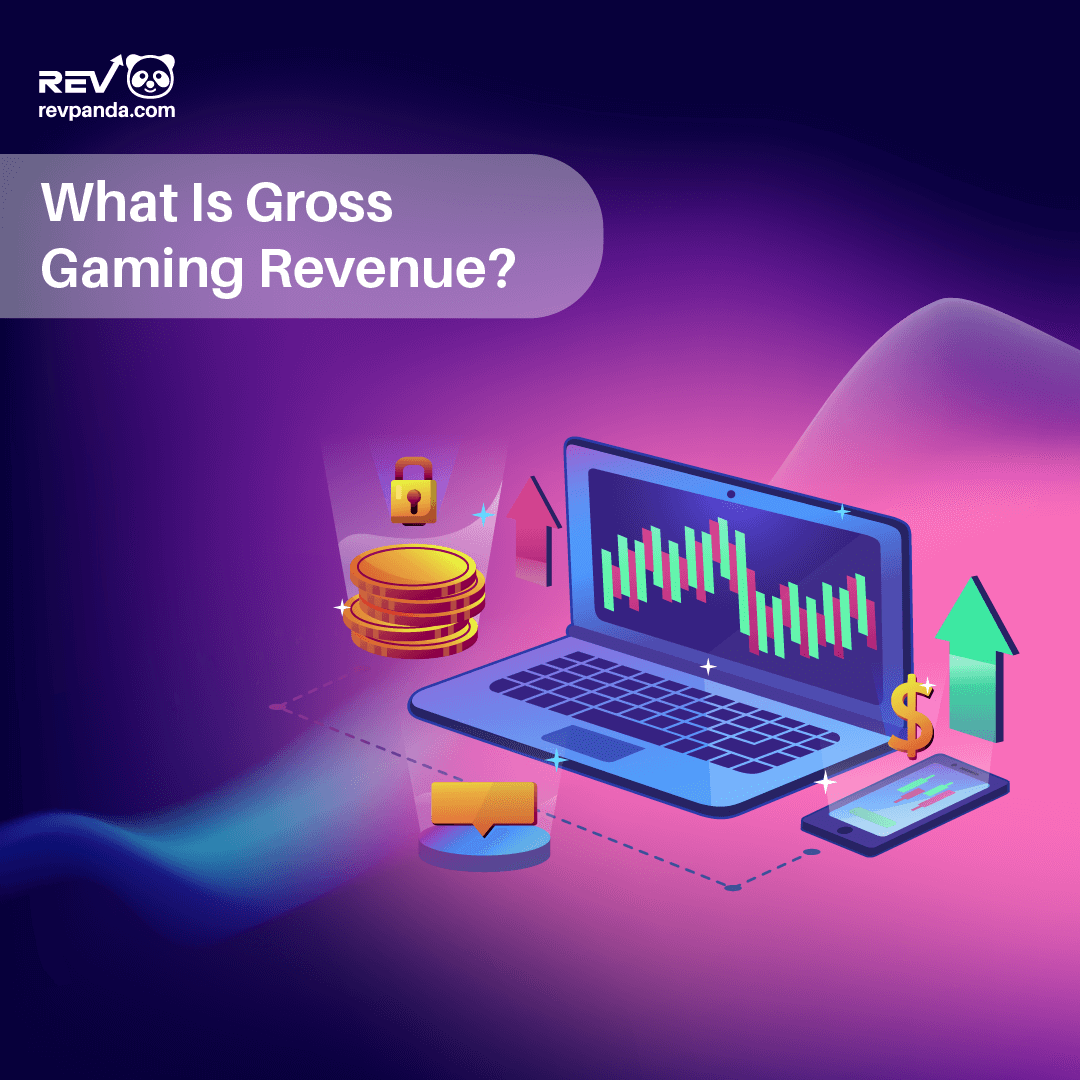Table of contents
Click on a title to jump to a section

When reputable online casino operators want to gauge their progress, they often analyse Gross Gaming Revenue (GGR) first since it is one of the key performance metrics in the gambling industry. In short, GGR is the money players wager minus their winnings, and to calculate it, you take the total amount bettors staked and subtract the amount you have paid out. As simple as the GGR formula is, it provides online gambling operators with vital data about their strengths and helps them understand areas for improvement.
Introduction to the Dynamics of Gross Gaming Revenue (GGR)

Gross gaming revenue is the total revenue retained after deducting player payouts from wagers, reflecting the operator’s earnings before expenses such as taxes, operating costs, and other financial obligations.. So, when trying to understand the dynamics of GGR, you have to look at only these two factors: the amount of money customers spend over a given period and how much of that money you return to players in the form of paid-out winnings.
There are no additional variables you need to consider when calculating gross revenue in the competitive iGaming industry. You don’t need to subtract costs related to taxes, royalty fees, employee salaries, or other expenses. That means GGR gaming figures are directly related to how much your customers spend and win. So, it is not surprising that GGR is often referred to as game yield, i.e., the money that stays in the house after customers have played your games.
Gross Gaming Revenue and Its Significance in the Gaming Industry
There are various reasons why you should understand and calculate gross gaming revenue. First of all, it is an excellent indicator of the financial health of your online casino. If your gaming revenue is high, you will be able to service all company costs, keep staff happy, and have the funds for future investments.
Also, if your revenue figures are good, that tells you that your gambling offer appeals to players, and instead of joining competitors, they are deciding to stay with you and spend their money on your platform. And the more money you retain from customers, the easier it will be for your business to navigate the waters of the industry in which hundreds of online casinos and gambling sites are vying for customers.
In this context, web development plays a significant role. A well-structured and user-friendly website not only attracts players but also enhances their gaming experience, contributing to increased GGR. Furthermore, when it comes to player satisfaction, high GGR figures also indicate that you offer generous bonuses, good customer support, adequate payment methods, and a user-friendly platform that players are instinctively attracted to.
How to Calculate Gross Gaming Revenue?

Calculating GGR is straightforward and essential for evaluating your financial performance. Let’s say you are about to post your quarterly results and want to calculate how much revenue you have obtained from players. For this example, we assume customers spent $10,000 and won $6,500 in the past three months.
Using the GGR formula (Money Players Wagered – Money They Won = GGR), you get $10,000 – $6,500 = $3,500. So, the gross gaming revenue (total revenue without any expenses) on your quarterly financial statements will be $3,500.
The GGR margin is another metric directly related to gross revenue. It shows the percentage of money you keep from the bets made. The formula for calculating the GGR margin is GGR / Total Amount Gambled. So, the GGR margin for the example above is $3,500 / $10,000 = 0.35, or 35%. As with gross revenue, the higher the GGR margin, the better the health of your business.
Explaining the Importance of Gross Gaming Revenue in Casino Operations
Gross gaming revenue is the first figure that comes to mind when calculating the growth of land-based and online gambling markets. For instance, GGR is a simple and effective metric to illustrate the rapid expansion of gambling in the US market, where GGR was $71.92 billion in 2024, a 7.5 percent increase over the previous record set in 2023. And that is just one of the reasons why calculating GGR is crucial for casino operations. Let’s look at the importance of GGR in other aspects of running a gambling business.
Evaluating Performance with GGR
There are several metrics you can use to track the performance and profitability of your online casino business. However, you always start with gross gaming revenue and then work your way down the income statement by analysing factors like cost of sales, profit, earnings, etc. In general, if you have a high GGR margin, chances are that other parameters related to performance and profitability will be positive too.
Online casinos are not immune to challenging times, and, often, you have to act decisively to deal with economic uncertainty and you might even want to consider recession-proof strategies tailored for iGaming businesses. Low GGR margins are quite common in hostile markets with low average revenue per user, so if that’s the case, your best bet is to rethink your strategy and see what you can improve to boost your total revenue.
Influence on Decision-Making and Strategy
You cannot launch a gambling platform without having a strategy for attracting as many players as possible and keeping your business profitable. For instance, if you are like most online casino owners, your strategy will consist of keeping your iGaming brand unique and providing players with an exceptional gambling experience. To achieve that, you will need to have the best games, high-quality casino gaming content, top-notch customer support, and a functional website layout that is easy on the eye. Working with a wide range of payment platforms will help too.
If the strategy you have outlined for your casino business works, GGR will confirm that. If it doesn’t, it’s the first parameter to tell you that you are doing something wrong. By digging deeper into the income statement and financial results, you will eventually find the culprit for your poor performances — for example, a high churn rate resulting in too few active players or an underperforming sports betting section.
Basis for Regulatory Compliance and Taxation
Regulatory bodies use gross gaming revenue as a basis for determining how much you will pay in taxes. In other words, if a casino operator needs to pay a 20% tax, it will be levied on the GGR figure the gambling company reported. If you had $100,000 GGR, you would need to pay $20,000 in taxes, an amount of money relative to the gross gaming revenue you posted in your financial results.
The specific tax rate can vary based on the location, type of gambling, and revenue thresholds. For example, in the UK, operators must pay tax on GGR under the oversight of the UK Gambling Commission. On the other hand, the Malta Gaming Authority calculates tax rate based on the revenue generated by operators from customers located in Malta.
Industry Competitiveness and Market Position
GGR data tells you a lot about the ability of your casino to attract and retain players. In doing so, it gives you a better idea of where you stand in the industry. Gross gaming revenue also reveals insights into your casino’s capacity for market penetration. That, in turn, provides you with valuable information about the popularity of your gambling offer compared to other online casino sites and what you can do to make your casino a more prominent player in the industry.
After carefully analysing GGR data in conjunction with other parameters and performance metrics, you can decide whether you need to invest time and money in a casino affiliate programme and bring your games and bonuses closer to players or increase your marketing efforts to reach a broader audience. Whatever the strategy you formulate, at the end of the day, it will be largely based on the GGR data you collect, as gross gaming revenue is a key metric when determining your position within the industry.
Factors Affecting Gross Gaming Revenue
Various determinants affect your gross gaming revenue. Understanding each will increase your chances of having higher revenue and will also help you improve other aspects of running your business, such as boosting cash flow and reducing the attrition rate. Here we look at four key factors that impact GGR and tell you what you can do to maximise your game yield.

Game Selection and House Edge
Offering players a wide range of games from reputable online casino game providers is a proven method to attract players. However, before you sign the agreements, consider the revenue share software providers ask for. Costs will inevitably stack up, so you might want to opt for a game aggregator.
The house edge you work with has a significant effect on your gross gaming revenue too. If you work with a higher profit margin, you will collect more money in the short term but might lose customers in the long run. It is all about creating the right balance.

Consumer Behaviour and Preferences
Being able to meet players’ needs will impact your gross gaming revenue. You can go about this in different ways, but the best method is to cater to as many players as possible. You can do that by analysing what gamblers want and tailoring your gambling offer to suit their preferences.
An impactful approach to aligning your offerings with player preferences is by implementing SEO strategies which enhance online visibility, making it easier for potential players to find your platform. This approach not only boosts player acquisition but, when combined with an exceptional gaming experience, also contributes to a lower churn rate, ultimately leading to improved GGR.

Competition and Market Dynamics
If you enter over-saturated markets and market segments, you should come up with a really competitive gambling offer. Otherwise, you stand little chance of getting the gross gaming revenue you want. So, pick your fights wisely and put all your resources to good use.
Even though it is difficult to stand out in crowded markets, it is not impossible, especially when you are aware of that market’s dynamics. If you can stay a step ahead of other casino operators, as well as innovate and update your offer regularly, there’s no reason why you shouldn’t get the gaming revenue you desire. This includes leveraging digital marketing strategies and effective brand management to reach a broader audience and maintain player engagement. By using techniques like social media marketing and targeted advertising, you can work towards attaining the gaming revenue you desire.

Economic Conditions
No online casino is immune to hostile market conditions and economic downturns. Even the best casino platforms have to push through rough patches from time to time. Conversely, even poorly managed gambling sites can sometimes make a decent profit if the economic environment they operate in is favourable.
So, it makes perfect sense that the economic setting you have positioned yourself in will impact your gross gaming revenue. Sometimes, you will be able to neutralise the effects of this hostile economic climate, while other times you will only be able to ameliorate them and try to keep GGR relatively stable.
Understanding the Relationship Between GGR and NGR

Gross gaming revenue (GGR) and net gaming revenue (NGR) are two crucial parameters to gauge the performance of your online casino business. As we explained, GGR represents the amount of money that stays with you after you have paid out your players’ winnings. It doesn’t include any expenses. In contrast, net gaming revenue, or NGR, is gross gaming revenue minus some gaming-related expenses.
Costs related to taxation and licensing, as well as player bonuses, commissions to payment systems, and royalties to game developers, are subtracted from GGR to get the final NGR figure. The formula for net gaming revenue is as follows:
- NGR = GGR – gaming-related expenses (bonuses, taxation, licensing, royalties, commissions).
The interplay between GGR and NGR tells you a lot about the performance of your online casino. For instance, if you have a high GGR but your NGR is on the low side, it might mean that you should rethink how generous your bonuses are or reevaluate the revenue share fees you agreed with game providers.
Gross Gaming Revenue vs. Net Gaming Revenue
GGR and NGR provide valuable insight into how well your online casino business is doing. As you saw above, these two performance-related metrics are similar, but they are not the same. Check out our Gross Gaming Revenue vs. Net Gaming Revenue comparison to learn more about what type of information each of these two indicators provides.
All gambling establishments calculate GGR
NGR is a key performance parameter for wagering companies
GGR measures casino winnings only
NGR incorporates some of the expenses in addition to casino winnings
GGR can be assessed on a national or regional level
NGR is calculated on national and worldwide levels by regulators and gambling associations
GGR is used to calculate taxation
Regulators don’t use NGR as the basis for taxation
GGR gives you a good idea of the performance of your business
Because it includes gaming-related expenses, NGR is a reliable performance indicator
Summary of Gross Gaming Revenue and Its Impact on Casino Performance

Gross gaming revenue is not a complicated metric to understand, but it is quite significant for online gambling companies and their future planning. It helps online casino operators determine their profitability as well as pinpoint strong and weak points performance-wise. That, in turn, affects future company plans and effective digital marketing strategies and tells gambling operators where they stand in the iGaming industry.
GGR is not to be confused with net gaming revenue (NGR), as expenses such as player promotions and taxes are calculated in the latter. Both GGR and NGR are crucial in defining current performance and specifying future strategies and decisions.
Maximise Gross Gaming Revenue and Your Casino Profitability
You can learn a lot about the performance of your online casino by analysing its gross gaming revenue. GGR is the first and most important parameter for the success of your operations. So, you should calculate it at regular intervals and adjust your plans and strategies accordingly.
By measuring GGR and using it as a yardstick for future strategies, you boost your chances of running a profitable gambling business that will attract and retain players. Get in touch with Revpanda’s marketing agents to learn more about how you can turn your online casino into a thriving gambling site that will make a difference for players.
FAQ

